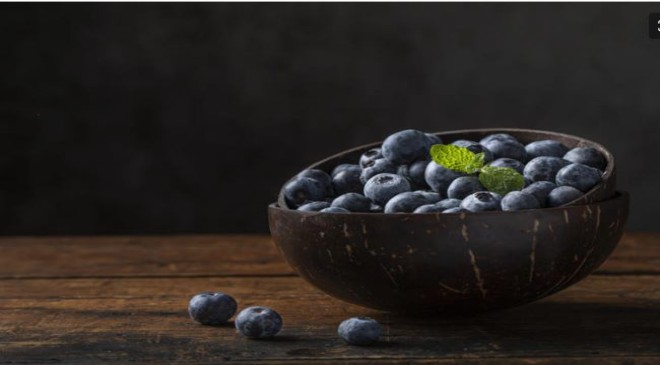Anti-cancer, anti-aging, anti-dementia – with all these potential advantages, it’s no wonder people are fascinated by antioxidants. Your body makes antioxidant enzymes, like glutathione, that counteract DNA-damaging molecules called free radicals. You also consume antioxidants with similar protective action in a variety of foods with proven health benefits. Getting your full share of antioxidants can reduce your risk of developing medical conditions like heart disease and cancer.
Although you can buy antioxidant supplements, their health benefits are uncertain – and in certain cases, they may cause harm. However, certain types of supplements do have a proven benefit in treating a specific type of age-related eye disease. Here’s the big picture on antioxidants.
What Are Antioxidants?
Your body naturally produces antioxidants through metabolism, or in response to exposure to toxins like radiation or tobacco smoke. You also need to obtain antioxidants in foods, particularly plant foods like fruits and vegetables. Antioxidants are thought to prevent the detrimental effects of aging.
What Do Antioxidants Do?
It can help to understand a few basic chemical terms and reactions to realize the importance of antioxidants.
Free radicals
These toxic, unstable compounds are generated in the body as it converts food to energy, or are breathed in through polluted air or produced by the action of sunlight on the eyes and skin. They’re also produced as a response to inflammation and stress.
Oxidative stress
If free radicals cannot be neutralized, they ‘steal’ electrons from stable molecules in the body, making them also unstable. This causes oxidative stress, which leads to DNA damage in our cells, and potentially causes serious medical problems.
“Free radicals are implicated in cancer and a number of conditions, including heart disease,” says Dr. Donald Hensrud, an associate professor of nutrition and preventive medicine at Mayo Clinic, and editor of “The Mayo Clinic Diet.”
Antioxidants definition
An antioxidant is a substance that neutralizes free radicals and prevents cell damage from oxidative stress.
Antioxidants in Foods
Diet and nutrition experts frequently suggest choosing among a “rainbow” of colorful foods for optimal health – and no, they don’t mean M&Ms or Skittles.
“Many of the antioxidants themselves are the plant pigments that make them such bright colors,” says Dr. Michael Greger, founder of NutritionFacts.org and a member of the U.S. News Best Diets expert panel. “The same biochemical property that gives them those beautiful colors is actually the same property that allows them to detox free radicals.”
You can see for yourself which foods are richest in pigment, Greger says, like the difference between white and sweet potatoes. Red cabbage has more pigment than regular cabbage, red onions have more than white onions, purple grapes are better than green grapes and so forth. Even black sesame seeds are richer in antioxidants compared to the regular version, he says.
However, pigmentation alone is only part of the picture, at least when it comes to potatoes, says Katherine Beals, a registered dietitian and nutrition consultant for Potatoes USA. Several studies and reviews support the rich antioxidant benefits of white potatoes, notes Beals, who is also a U.S. News Best Diets panelist. White potatoes exceed sweet potatoes in total antioxidant content, and contribute a significant portion of specific antioxidants in the flavonoid, phenolic acid and carotenoid types, evidence shows. Beals adds that “eating a rainbow” of colors should also include white vegetables like potatoes and cauliflower.
There are hundreds of antioxidants. These are among the best-known and most-studied types:
- Anthocyanins. These pigments produce blue, purple and red colors in fruits and veggies like berries, grapes, cranberries, eggplant, beets and red cabbage, as well as in red wine. Anthocyanins fall under the bioflavonoid category of antioxidants. Anthocyanin-rich foods like berries are important components of the MIND diet, which was created to protect the brain as it ages and helps prevent dementia.
- Carotenoids. These pigments produce bright orange, red and yellows in fruits and vegetables like carrots, oranges, grapefruit, squash and yams. Carotenoids such as lutein and beta-carotene are also found in leafy greens like spinach. Lycopene gives tomatoes their bright red color. Carotenoids are essential for eye health, among other functions.
- Terpenoids. These antioxidants are found in foods like garlic, onions, cauliflower, coconuts and whole grains. They help counter disease-causing organisms like fungi, parasites and viruses.
- Vitamin C. Water-soluble vitamin C is found in a wide range of citrus and other fruits like berries and kiwi, and in vegetables like bell peppers and Brussels sprouts. Vitamin C has multiple functions and is vital for bone, muscle, cartilage and blood vessel development.
- Vitamin E. Falling under the category of tocopherols or tocotrienols depending on its form, vitamin E is found in leafy green vegetables, seeds, nuts and vegetable oils. The alpha-tocopherol form of vitamin E plays the antioxidant role.
- Zinc. The mineral zinc is found in the largest amounts in meat, fish and seafood. Oysters contain the most zinc of any food. Eggs and dairy contain zinc, as well. Breakfast cereals and other foods like flour are sometimes fortified with zinc. Wound healing and blood clotting are among zinc’s important functions.
- Following a plant-based diet, such as the Mediterranean diet or the Flexitarian diet, can help you take in the healthful antioxidants you need.
- Foods High in Antioxidants
- You can access the Retina Foundation’s Antioxidant Food Table to find the precise antioxidant content of more than 3,100 foods and supplements worldwide, compiled as part of a study published in the Nutrition Journal.
- Antioxidants in selected foods
- These are examples of foods with relatively high antioxidant content (measured by millimoles per 100 grams):
- Artichoke (boiled): 4.5.
- Blueberries: 9.
- Black chokeberries: 13.5.
- Chocolate (for baking, unsweetened): 10.
- Clove (dried, ground): 126.
- Coffee beans (roasted, black): 23.
- Oregano (dried): 96.
- Pecans (with skin): 10.5.
- Pomegranate (yellow pith only): 56.
- Saffron (dried, ground): 62.
- Walnuts (with skin): 16.
The big takeaway: Plant foods have 64 times more antioxidants than animal foods, on average, according to Greger. In particular, berries have about 10 times as much as other fruits and vegetables and are only beaten out by herbs and spices in their antioxidant proportions.
Antioxidants’ Benefits
Antioxidants may play a role in preventing heart disease, cancer and age-related conditions like dementia, according to a large body of research.
Antioxidants and dementia prevention
Adding high-antioxidant foods in your diet now could help prevent dementia later. A recent long-term study, published in the May 2022 issue of the journal Neurology, supports the benefit of three key antioxidants in reducing dementia risk.
The nearly 7,300 study participants, ages 45 to 90, were grouped according to the antioxidant levels in their blood, and then followed for an average of 16 years.
During the study period, participants who had the highest amount of lutein and zeaxanthin (found in green leafy vegetables) in their blood were less likely to develop dementia. Participants with high levels of beta-cryptoxanthin (found in orange-toned foods like persimmons, tangerines and papaya) also had reduced dementia risk.
Antioxidants may help counter the damaging effects of oxidative stress on the brain, explains study author May Beydoun, a staff scientist with the National Institute on Aging, part of the National Institutes of Health.
A surprising finding from the study was that other antioxidants like vitamin E and beta-carotene were not associated with dementia-related outcomes, Beydoun says, noting that randomized controlled trials are needed to learn more about antioxidants and their role in brain protection from dementia.
Antioxidants and disease prevention
Antioxidants appear to play a role in cancer prevention. “You can measure antioxidants not only in the diet, but antioxidant capacity once in the bloodstream,” Greger says. That means scientists can gauge not only how much antioxidants people consume, but also how much actually circulates through the body. “And total antioxidant capacity in the diet correlates with lower risk of getting cancer, lower risk of dying from cancer and lower risk of dying prematurely altogether.”
However, teasing out antioxidants’ prevention power is challenging in one way. “The problem, of course, is that high-antioxidant foods are among the healthiest foods,” he notes. “So there are all sorts of wonderful things found in these foods. How do we really know it’s the antioxidants?”
The bottom line is: If you focus on healthy, plant-based foods, you’ll reap benefits from antioxidants along with other key substances. However, one type of antioxidant, beta-carotene in supplement form, has been shown to increase lung cancer risk in smokers.
Antioxidant research
Research on antioxidants and their health effects has been going on for decades.
Years ago, researchers noted that people who consumed foods high in antioxidants like beta-carotene, and who had the highest blood levels, had lower risks of heart disease and cancer, Hensrud says. Here are a few examples of the many studies on foods, antioxidants and health.
- Western Electric study. An early study, published in January 1996 in the Journal of Epidemiology, included about 1,550 middle-aged men who worked at the Western Electric Company and assessed certain factors including their dietary intake. During the study follow-up period, 231 men died of coronary heart disease and 155 men died from cancer. Evaluating the nutrition data, researchers concluded that “consumption of foods rich in vitamin C and beta-carotene reduces risk of death in middle-aged men.”
- Dietary antioxidants-mortality review. Researchers evaluated results from 41 studies involving more than 500,000 total participants in a systematic review published in the journal Advances in Nutrition in November 2018. Looking at mortality causes in nearly 74,000 cases, they found an inverse association between death risk and overall dietary antioxidants or certain specific antioxidants including carotenoids and vitamin C, suggesting a reduced risk in all-cause mortality. “Our results confirm current recommendations that promote higher intake of antioxidant-rich foods such as fruits and vegetables,” the authors concluded.
- Dietary antioxidants-heart disease study. A roughly decade-long study of about 5,100 participants ages 30 and older assessed their dietary intake to estimate the development of cardiovascular disease associated with total intakes of vitamins A, C and E and zinc. Fruits, vegetables and legumes were the main antioxidant sources. Vitamin E consumption alone was associated with a significant decrease in risk. “Our study suggests an inverse association between vitamin E intake and the risk of CVD, emphasizing the potential protective role of fruit and vegetables in the prevention of CVD,” concluded the study published in January 2022 in the journal Nature.
- Breast cancer-antioxidants study. A European study found that the risk of breast cancer was about 27% to 34% lower among women who consumed the highest levels of dietary vitamin C and some types of carotenoids, compared with women who consumed the least of these antioxidants, in research supported by the World Cancer Research Fund International.
Antioxidant Supplements
Antioxidant supplements may be ineffective and in some cases, harmful. “Antioxidant supplements are a multibillion-dollar industry, touted for anti-aging properties, but we have hundreds of studies to the contrary,” Greger says. However, an antioxidant ‘cocktail’ has been found beneficial for some patients with age-related macular degeneration, a progressive eye disease.
Building on early knowledge of healthy antioxidant properties in food, there was a wave of studies on antioxidant supplements, including landmark trials like these:
- ATBC study. Conducted in part by the National Cancer Institute from 1985 to 1993, this study involved nearly 30,000 male smokers in Finland, to determine whether specific vitamin supplements prevented lung cancer and other cancers. Participants were randomly assigned to receive a daily capsule of either vitamin E, beta-carotene, a combination of the two or a placebo. During the study period, 876 new cases of lung cancer were diagnosed. No prevention benefit was seen from either supplement, and there was possibly harm. “Unexpectedly, we observed a higher incidence of lung cancer among the men who received beta-carotene than those who did not,” researchers reported.
- CARET study. This randomized study, which also began in 1985, included more than 18,000 people at high risk of lung cancer from long-term, heavy smoking or occupational asbestos exposure. Participants were randomly assigned to receive either a daily combination of beta-carotene and a-retinyl palmitate (a form of vitamin A) or a placebo. The study was halted ahead of schedule with two conclusions: There was no preventive benefit, and there was substantial evidence of a harmful effect of the antioxidant intervention on both lung cancer incidence and overall mortality.
- Vitamin E/Women’s Health Study. Published in 2005, this study investigated whether or not vitamin E supplements reduced the risk of cardiovascular disease and cancer among healthy women. The nearly 40,000 participants, ages 45 or older, were randomly assigned to receive vitamin E, aspirin or a placebo every other day for an average of 10 years. Researchers found no overall preventive benefit for major cardiovascular events including heart attacks, stroke or cardiovascular death, no overall cancer benefit or effect on total mortality in women taking vitamin E. The conclusion: “These data do not support recommending vitamin E supplementation for cardiovascular disease or cancer prevention among healthy women.”
- AREDS/AREDS2 Supplements for Eye Disease. A combination of specific nutritional supplements can benefit people with an eye disease called age-related macular degeneration (AMD), a two-study series found. Conducted by the National Eye Institute, they examined the effects of supplements both on AMD and cataracts. Researchers identified supplement combinations that reduced disease progression by about 25% when taken by people with intermediate to advanced AMD. However, these formula combinations do not prevent AMD onset or have any effect on cataracts. The AREDS formula contains vitamins C and E, beta-carotene, copper and zinc. The AREDS2 formula, a later version, contains vitamins C and E, copper, lutein, zeaxanthin and zinc. Current and former smokers are advised to take the AREDS2 formula to avoid beta-carotene, which increases lung cancer risk.
Pro-Oxidant Foods
On the flip side of antioxidants, certain foods are higher in harmful substances – known as pro-oxidants – that can actually contribute to unhealthy oxidative stress. While they may confer some health benefits, it’s important to counterbalance them with antioxidant-rich foods.
Foods with pro-oxidant effects
Try to be aware of and limit these pro-oxidant foods:
- Sugar. Soda, candy and many desserts are often high in sugar.
- Refined carbohydrates. White flour, rice and bread are refined carb examples.
- Processed meats. Animal protein and high-fat content may contribute to inflammation and pro-oxidation.
“Sugar is a pro-oxidant,” Greger says. “Drink a soda and you’re going to decrease the total antioxidant content of your bloodstream. However, interestingly, if you drink the same amount of sugar in the form of orange juice, you don’t get the spike on oxidation. Why? Because the sugar in food is part of a package deal, with antioxidants like vitamin C – just like nature intended.”
So, rather than spooning sugar in your coffee or eating frosting-rich cake, satisfy your sweet tooth with some fruit.
Similarly, he says, a fat source like heavy whipping cream is highly oxidative. However, healthy fatty foods like nuts, avocados or extra-virgin olive oil don’t produce the same effect because they come “prepackaged” with antioxidants.
If you have a meal like a bagel with cream cheese, adding strawberries for dessert can neutralize free radical damage, Greger says. Make sure your pancakes or muffins have blueberries, he advises, or put jam on your white bread. “Otherwise, by lunchtime, you’re already in oxidative debt,” he says. “You’ve used up antioxidants and dug your hole deeper.”
Stay mindful of what you eat. “Every meal – and I try to tell this to my patients – is an opportunity to tip the balance from a pro-oxidant to an antioxidant direction,” Greger says.
Food Antioxidants: Delicate Balance
In a way, antioxidants function together as a team – so focusing on a single or a few antioxidants alone may be counterproductive.
“Antioxidants work in concert,” Greger says. “Supplements might have a few antioxidants, whereas our bodies rely on hundreds of them – all working together to create this network to help our bodies dispose of free radicals. And high doses of a single antioxidant can upset this delicate balance. So, the whole food may be greater than the sum of its parts, (creating) a kind of synergistic reaction. That’s why we should try to get our antioxidants the way nature intended – and that’s from real food.”
Focusing on a balanced diet makes sense. “In the past, we used a reductionist approach to nutrition: ‘What’s the one nutrient that’s beneficial or one food that’s beneficial?’” Hensrud says. “As in: ‘Blueberries are the best source of antioxidants so how many blueberries should I eat?’” Instead, he says, “I try to talk to my patients in practical, pragmatic terms. The bulk of the evidence supports a diet of minimally processed foods and mostly plants. It sounds deceptively simple but that’s what’s most important.”





























